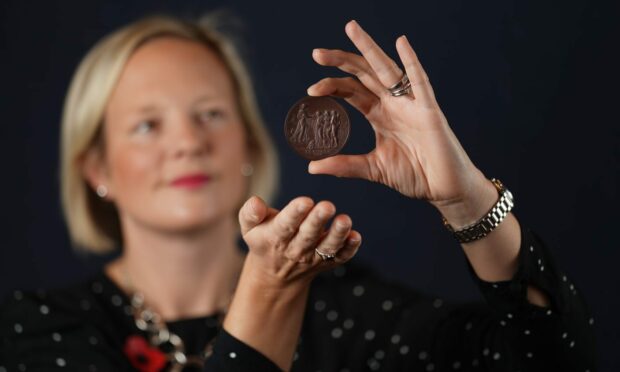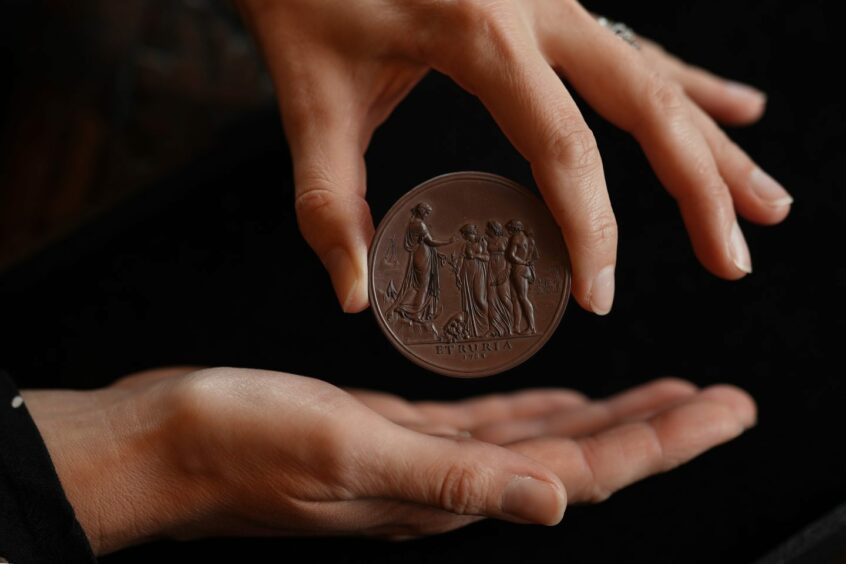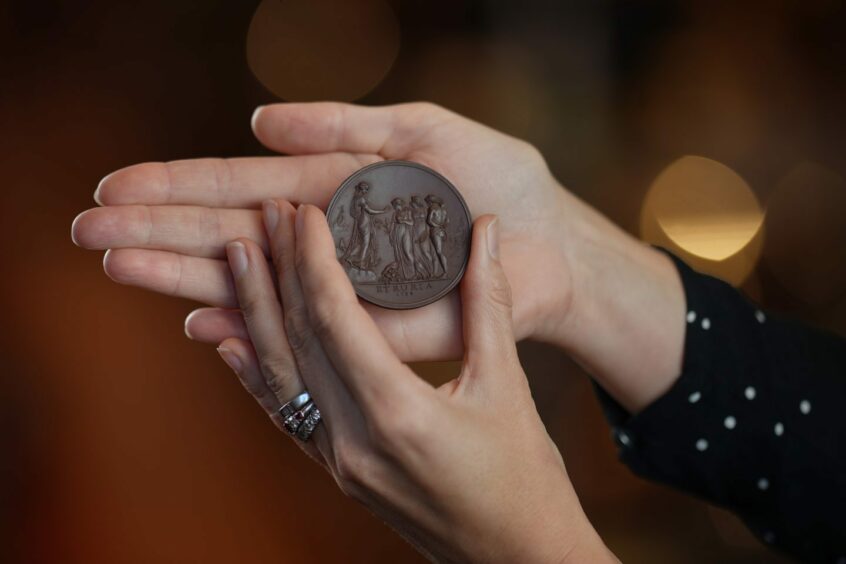An exceptionally rare 18th-century ceramic medallion produced to commemorate the founding of modern Australia will be sold live and online by Edinburgh auctioneers, Lyon & Turnbull.
The Sydney Cove Medallion, valued between £30,000 and £50,000, is slightly smaller than a digestive biscuit.
It was made in 1789 from clay which was dug up at Sydney Cove, now Sydney Harbour.
The clay was sent back to Britain in a box to Sir Joseph Banks at the Royal Society.
The famous explorer and naturalist had travelled on Captain Cook’s first voyage to New South Wales on board Endeavour in 1770.
Banks then sent a sample of the clay to revolutionary British potter and industrialist, Josiah Wedgwood, for experimentation.
When is medal being sold?
The medallion is being sold on Wednesday November 16 as part of Lyon & Turnbull’s two-day long Five Centuries sale.
This original artefact is a direct link to the voyage of what became known as The First Fleet under Captain Arthur Phillip.
The fleet consisted of 11 ships and carried more than 850 convicts.
It dropped anchor at Sydney Cove on January 26 1788, where a penal colony was to be established.
This marked the beginning of the European settlement in Australia.
The Sydney Cove Medallion depicts a classically inspired scene in which the figure of Hope, dressed in Grecian robes, extends her right hand towards the figures of Art and Labour, under the influence of Peace.
Hope encourages them to work for the prosperity of the new young settlement.
Wedgwood was proud of creating this medallion and he impressed on the reverse a bespoke maker’s mark.
Henry Webber designed the medallion for Wedgwood, while his principle modeller, William Hackwood, finished the moulds.
It is believed that around two dozen medallions were produced.
The whereabouts of 12 medallions is currently known.
Are there other medals?
In addition to the medallion being offered at Lyon and Turnbull, three are held in UK museums while eight are in Australian museums and institutions.
Katherine Wright, senior specialist at Lyon & Turnbull said: “The medallion embodies the ingenuity of one of 18th century Britain’s leading industrialists, and it plays an important part in the history of travel and exploration, commemorating the settlement at Sydney Cove.
“The wonderful, crisp detail that is achieved in the design of this fine and fragile medallion is exceptional. It is a rare survivor.
“Given that so few are known, we anticipate international interest in this historic piece.”
Following his receipt of the clay, Wedgwood sent an example of the finished medallion to Banks.
In the accompanying letter, he wrote: “I have the pleasure of acquainting you, that the clay from Sydney Cove, which you did me the honour of submitting to my examination, is an excellent material for pottery…Of the species of ware which may be produced from it, you will have some idea from the medallions I have sent for your inspection.”













Conversation